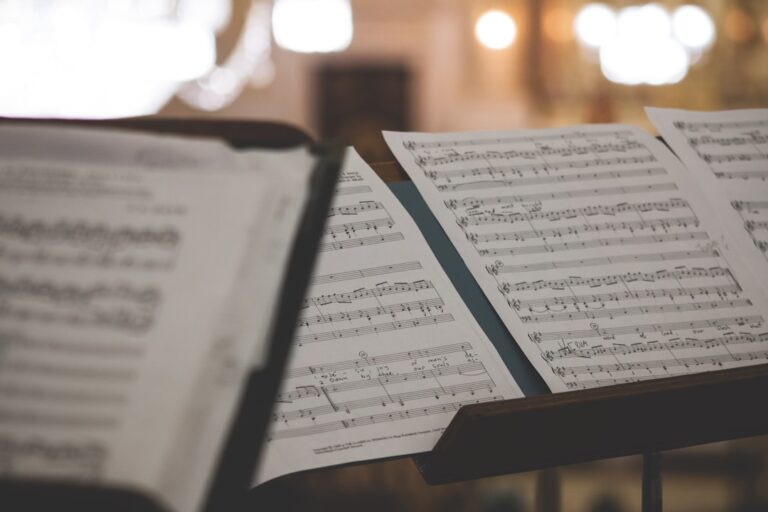Franz Schubert, born on January 31, 1797, in Vienna, Austria, stands as one of the most significant composers of the early Romantic era. His life, though tragically short—he passed away at the age of 31—was marked by an extraordinary output of music that has left an indelible mark on the classical canon. Schubert’s compositions encompass a wide range of genres, including symphonies, operas, chamber music, and an extensive collection of lieder (songs).
His ability to convey deep emotion through melody and harmony has earned him a revered place in the pantheon of great composers. Schubert’s early exposure to music came from his family; his father was a schoolmaster and his mother a homemaker, both of whom encouraged their children’s musical education. By the age of five, Schubert was already learning the violin and piano, and he later studied composition under Antonio Salieri, a prominent figure in Vienna’s musical landscape.
Despite his formal training, Schubert’s style was heavily influenced by the folk music of Austria, which he seamlessly integrated into his compositions. This blend of classical form with folk elements would become a hallmark of his work, allowing him to create music that resonated with both the educated elite and the common people.
Schubert’s Music and Legacy
Schubert’s musical legacy is characterized by his innovative approach to song composition. His lieder are particularly noteworthy; they often feature intricate piano accompaniments that enhance the emotional depth of the vocal line. One of his most famous songs, “Erlkönig,” exemplifies this technique.
The piece tells a haunting tale of a father and son riding through the night while being pursued by a supernatural entity. The piano part mimics the galloping horse, creating a sense of urgency and tension that complements the dramatic narrative. This ability to fuse text and music into a cohesive whole set Schubert apart from his contemporaries and laid the groundwork for future generations of composers.
In addition to his lieder, Schubert’s symphonic works also reflect his unique voice. His Symphony No. 8 in B minor, commonly known as the “Unfinished Symphony,” is a prime example of his innovative orchestration and thematic development.
Composed in 1822, it consists of only two completed movements, yet it is celebrated for its lyrical melodies and rich harmonic language. The symphony’s unfinished status has led to much speculation about Schubert’s creative process and intentions, but it remains a testament to his genius. The emotional depth and structural sophistication found in Schubert’s music have influenced countless composers, including Johannes Brahms and Gustav Mahler, solidifying his legacy as a pivotal figure in Western classical music.
Uncovering Schubert’s Personal Life

While Schubert’s musical achievements are well-documented, his personal life remains shrouded in mystery. He lived during a time when societal norms dictated strict boundaries regarding personal expression, particularly concerning sexuality. Schubert never married and had few known romantic relationships, leading many scholars to speculate about his sexual orientation.
His close friendships with men, particularly with fellow composer Anselm Hüttenbrenner and poet Franz von Schober, have fueled discussions about the nature of these relationships. Schubert’s life was also marked by financial instability and health issues. He struggled to make a living as a composer and often relied on the support of friends and patrons.
Despite these challenges, he maintained a vibrant social life within Vienna’s artistic circles. His gatherings often included musicians, poets, and artists who shared a passion for creativity and expression. These interactions not only influenced his work but also provided him with a sense of community in an otherwise tumultuous world.
The juxtaposition of his public persona as a celebrated composer and his private struggles paints a complex picture of an artist navigating the constraints of his time.
Evidence of Schubert’s Sexuality
| Category | Evidence |
|---|---|
| Personal Correspondence | Letters to friends and family discussing romantic interests |
| Biographical Accounts | Accounts from friends and acquaintances detailing Schubert’s relationships |
| Compositions | Analysis of Schubert’s music and lyrics for potential references to his sexuality |
| Historical Context | Understanding of societal attitudes towards sexuality during Schubert’s lifetime |
The exploration of Schubert’s sexuality has gained traction among musicologists and biographers in recent years. While definitive evidence is scarce due to the societal taboos surrounding homosexuality in the 19th century, several clues suggest that Schubert may have identified as queer or at least experienced same-sex attraction. Letters exchanged between Schubert and his male friends often contain affectionate language that could be interpreted as romantic or intimate.
For instance, his correspondence with Franz von Schober reveals a deep emotional connection that transcends mere friendship. Moreover, some scholars point to the themes present in Schubert’s lieder as reflective of his inner life. Many of his songs explore longing, desire, and unrequited love—emotions that resonate with experiences often associated with queer identity.
The song “Gretchen am Spinnrade,” based on Goethe’s “Faust,” captures the essence of yearning and despair in love, which can be interpreted through various lenses, including that of a queer artist grappling with societal expectations. While it is impossible to label Schubert definitively within modern sexual identities, these elements suggest that his personal experiences may have informed his artistic output in profound ways.
Impact of Schubert’s Hidden Identity
The implications of Schubert’s hidden identity extend beyond mere speculation about his sexuality; they invite a broader discussion about how societal norms shape artistic expression. Living in an era when homosexuality was largely stigmatized, Schubert may have felt compelled to conceal aspects of himself that did not conform to societal expectations. This concealment could have influenced not only his personal relationships but also the themes present in his music.
The tension between public persona and private identity is palpable in many of his works, where feelings of isolation and longing are prevalent. Furthermore, the lack of open discourse surrounding sexuality during Schubert’s lifetime meant that many artists like him had to navigate their identities in silence. This silence can lead to a rich subtext within their work—an undercurrent that resonates with those who feel marginalized or misunderstood.
In this light, Schubert’s music becomes not just an expression of beauty but also a poignant commentary on the human experience of love and loss in all its forms. The emotional depth found in his compositions may serve as an outlet for feelings that could not be openly expressed in society.
Reevaluating Schubert’s Place in History

Reevaluating Schubert’s Place in Music History
Traditionally viewed through the lens of Romanticism, Schubert’s contributions are now being examined with an awareness of how personal identity intersects with artistic creation. This shift encourages a more nuanced understanding of not only Schubert but also other composers who may have faced similar struggles.
The Intersection of Identity and Artistry
The reexamination of Schubert’s legacy invites us to consider how cultural narratives shape our understanding of historical figures. By acknowledging the potential impact of his hidden identity on his work, we can appreciate the layers of meaning embedded within his compositions. This perspective not only enriches our understanding of Schubert as an artist but also highlights the importance of inclusivity in historical discourse.
Uncovering the Enigmatic Composer
As we continue to explore the lives of artists through diverse lenses, we gain deeper insights into their contributions and the societal contexts that shaped their experiences. In conclusion, Franz Schubert remains an enigmatic figure whose music transcends time and continues to resonate with audiences today. His ability to convey profound emotion through melody and harmony has solidified his status as one of the great composers in Western classical music history.








